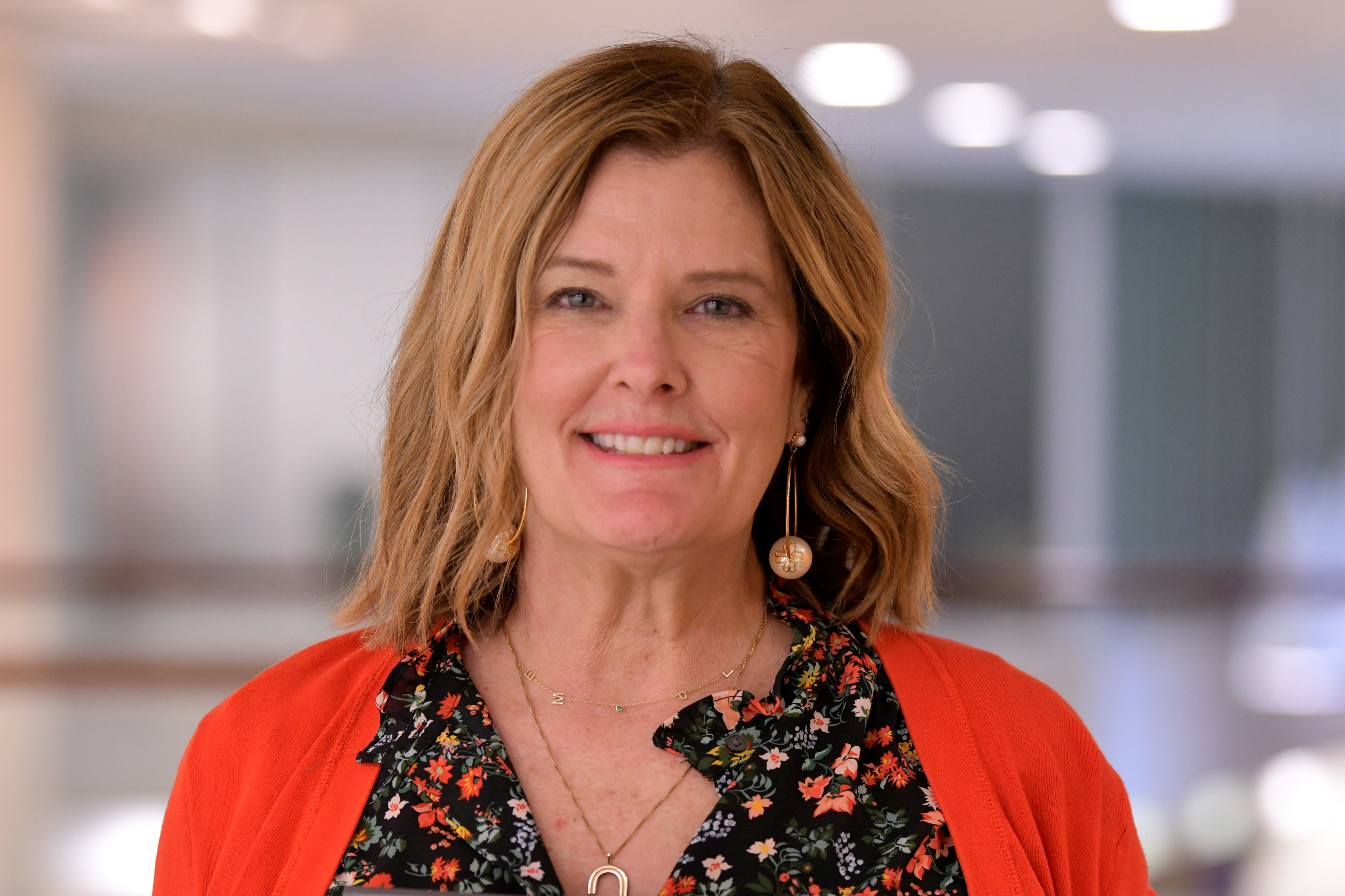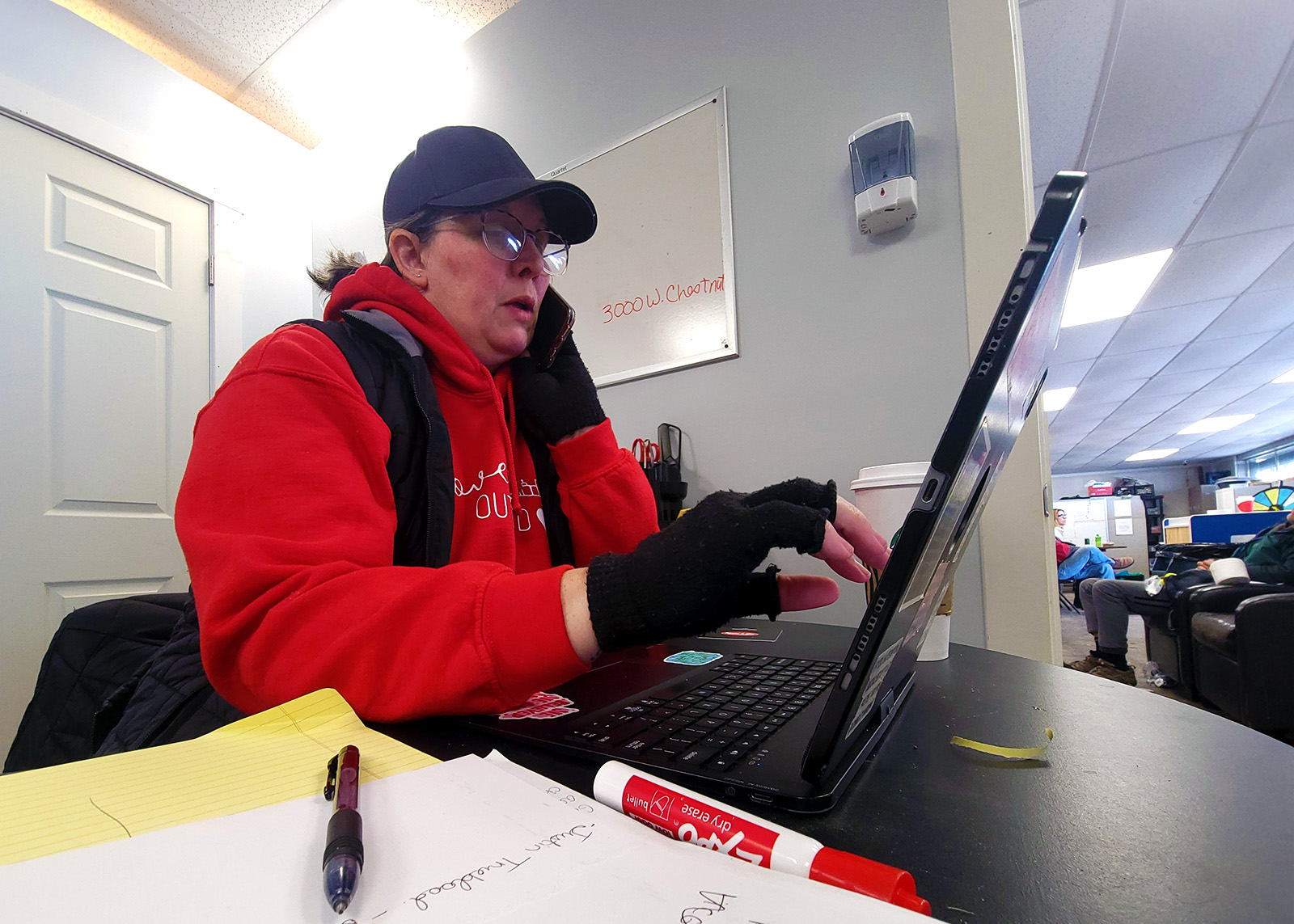Editor’s note: This story is part of an occasional series on top community health issues, as identified by the Ozarks Health Commission.
When Springfield’s most vulnerable patients visit Mercy’s emergency room, they often meet with someone assigned to see if there are community resources available to avoid a future visit to the ER. The Mercy Hospital staffers are called community health workers, and their job is to connect underresourced patients to places where they can get immediate help for needs like food, shelter and medication — needs that exacerbate health problems when they’re lacking.

But a lot can happen between the hospital and a food bank, said Molly Holtmann, director of community health and access for Mercy Hospital. When community health workers refer people in need to many partner agencies in Springfield, the patients are often starting from scratch when they get to the door.
They “either have to retell their whole story or something else has happened, and the story has changed,” Holtmann said. It’s a gap that causes frustration for many.
One way local health officials are looking to bridge that gap is to build up a system here similar to one in place in the St. Louis area. It’s called a community information exchange (CIE), and it’s a way for medical providers, nonprofits and other social service agencies to share a patient’s information over one shared data network, with a patient’s sign-off. Run through a platform created by a company called Unite Us, the network will get more care providers on the same page to best address a person’s needs from health and social perspectives, Holtmann said.
“We're basically saying: ‘Somebody's going to be waiting for you over there. They're going to know what you need. You don't have to repeat yourself. You don't have to ask for the same things over and over again. We're going to refer you here, and you have an appointment,’” Holtmann said. “It's just saying that, if we can help people get medication access and get food and get shelter, they'll be able to better manage their conditions, and they probably won't be utilizing the health care system quite as much.”
The CIE is one of many ways public health officials across Springfield are looking to address the Springfield area’s top chronic health issues — diabetes, mental health and substance use — prioritized in a 2022 Ozarks Health Commission report. CoxHealth cites the development of a CIE in its community health improvement plan. And at Mercy, Holtmann said it has the potential to help people who are underinsured, uninsured or vulnerable in some manner get the resources they need.
“I think it's going to help a lot, honestly,” Holtmannn said.
Connecting Grounds pastor says network could be ‘game changer’ if Springfield’s social service providers buy-in

Over the phone at The Connecting Grounds outreach center, Christie Love pulled up the Unite Us program on her computer and looked at the profile of the most recent client referred to her by a Mercy community health worker. The person needed food.
For Love, a pastor and advocate for unsheltered Springfield residents, knowing an emergency need in advance means she and her staff will either be ready to address it when the person arrives at the door. Or a street outreach team member can meet them where they are. Sometimes, Love said, the community health worker at Mercy will type the client’s meetup plans in the notes section of a client’s Unite Us referral. With that and the client’s most up-to-date contact information in the same account, it streamlines care, Love said, and allows agencies to put people’s needs first.
“When we look at the design of it, it’s phenomenal,” Love said of the Unite Us system.
And when The Connecting Grounds refers a person to get care at Mercy, Love said she can write a note letting staff there know that the person is staying at the Respite House. Love said it’s already led to fewer patients being discharged to the street.
Love said The Connecting Grounds first joined the Unite Us system in November of 2021 as part of a pilot program in Springfield. So far, it’s been helpful in strengthening lines of communication between The Connecting Grounds and Mercy, which will serve as the Springfield network’s hub. But she said it needs more buy-in from social service providers in Springfield to reach its potential. If The Connecting Grounds can’t fill a person’s need, a more developed network will be able to quickly identify another agency that can.
“It could be a game changer for sure,” she said.
The groundwork is being laid. Love said she’s recently seen a few more local agencies appear in her network. Unite Us, has been working to bring partners on board in the area, Holtmann said.
“I anticipate this making a huge difference,” Holtmann said. “Because we see a lot of really vulnerable patients that come into Mercy, and we work really hard to make sure that they aren't just discharged back to the street or they don't leave without access to the community resources they need. And this is a way for us to double-cross our T's and make sure that they are getting some of those resources.”
Over 200 programs linked to Unite Us across Southwest Missouri
Mike Mitchell, strategic sales director at Unite Us, said about 100 organizations, representing over 200 health and social service programs, are signed up so far across Southwest Missouri. Like Love, he said the network’s efficacy will grow with its client base.
Unite Us is behind the CIE that launched recently in St. Louis, which the head of the United Way of Greater St. Louis has also described as a game-changer. In St. Louis, the United Way is the lead agency running the CIE, with Mercy serving a key supporting role. In Springfield, Mercy will take the lead role, Holtmann said.
The primary funders of Unite Us are health care organizations, Mitchell said. Health insurers and government agencies have also funded the company, he said. Organizations like The Connecting Grounds aren’t charged to access it.
“Taking money away from nonprofits is not core to our mission,” he said. “They are the drivers of these social services, and if anything, we actually want to drive more resources towards those nonprofits.”
Holtmann and Mitchell both said that if Unite Us can help people access medication, food, shelter and other needs, it eases the strain on emergency services at health care systems.
“I just feel like this will maybe just pave the way,” Holtmann said. “It's not going to solve all our problems, you know, but it will pave the way and make it easier. And then, hopefully, when we get this in place, we'll see what needs to happen next. We can identify some of those gaps that we don't have — the resources we don't have to refer them to — so we can figure out a way to have them.”

